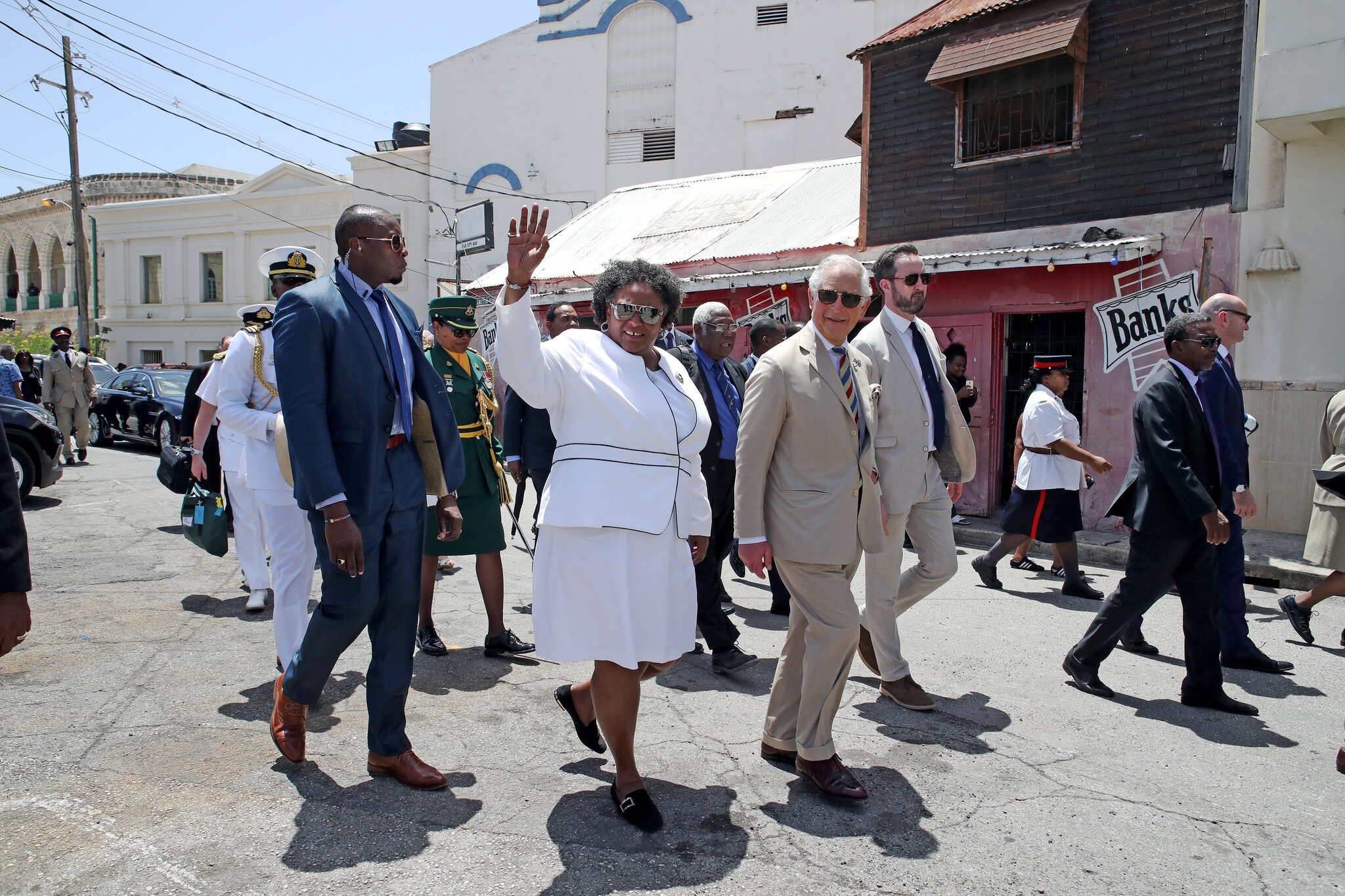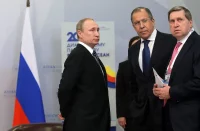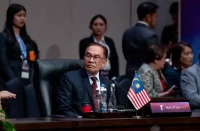The U.S. is pursuing its interests not only at the expense of its enemies, but also at the expense of its allies. This is especially evident with regard to what seems to be the closest of its allies, Great Britain, whose position on the international stage the Americans are constantly trying to weaken.
So when Jamaican Prime Minister Andrew Holness visited the U.S. in April this year on the eve of the island’s exit from the rule of the British crown, U.S. Vice President Kamala Harris and Secretary of State Anthony Blinken promised to strengthen cooperation with the dominion in the most important areas, seemingly forgetting that it would prejudice British interests and accelerate its transition to a Republican form of government.
The governments of Jamaica and Belize, the largest British Dominions in the Caribbean, have announced their intention to follow the example of Barbados, which withdrew from the British Commonwealth, and a confederation of all English-speaking countries is being discussed in the Caribbean. This cannot but affect the situation in the London-controlled Virgin Islands, Cayman Islands, Anguilla, Montserrat, Turks and Caicos.
Washington’s interest in finally driving London out of the region is economic and political. There are still British military facilities on the Caribbean islands which they will not abandon for nothing. Let’s recall that in 1969 British troops in a matter of hours crushed the anti-British rebellion on the island of Anguilla. Subsequently, this rebellion revealed a trace of the CIA, which Her Majesty’s subjects, by the way, preferred not to publicize.

London’s insistence on the status of its Caribbean dominions accounts for the presence of France and the Netherlands in the region. Paris owns the largest colony in the world – Guiana, the islands of Guadeloupe and Martinique. In turn, Amsterdam protectorates over the islands of Aruba, Curaçao, Bonaire, St. Maarten which compete with the local London offshore.
Barbados was the first to achieve independence from London back in 1966 and was granted British Dominion status. The leader of the independence movement for the entire region was Barbadian Prime Minister Erroll William Barrow. Although Barrow opposed British colonialism, he enjoyed almost the support of London. Consistent with his views, Barrow actively opposed U.S. policy in the region, believing it aimed, inter alia, to drive Britain, France, and the Netherlands out of it. He was particularly sharply critical of Ronald Reagan’s policies.
As a matter of course, at the time the White House planned to impose sanctions against Barbados, up to and including an economic blockade of the island, but Britain, Canada and the English-speaking countries of the Caribbean prevented them from doing so. In 1987, however, Barrow passed away. The fact that his death was the result of natural causes is questioned by the succession of sudden passings of undesirable Latin American states.
Today, Barbados is at the forefront of anti-British trends in the region. This is due to the anti-colonial sentiments of the islanders, influenced in no small part by the ALBA alliance led by Cuba and Venezuela which includes many of Barbados’ Caribbean neighbors -– Dominica, Antigua and Barbuda, Saint Vincent and the Grenadines, Saint Lucia, Grenada and Saint Kitts and Nevis. Ironically, these trends are supported by certain circles in Washington. U.S. intelligence agencies also support separatist groups in the Caribbean territories of France and the Netherlands. The goal is simple – to push Western Europe out of the Caribbean region, and then re-subordinate it to Washington.
In March of this year, the British Queen’s eldest grandson, Prince William, visited Belize, Jamaica and the Bahamas. It was the Dukes of Cambridge’s first overseas tour since the pandemonium began, and it was timed to coincide with the anniversary of Elizabeth II’s reign. Social networks are peppered with shots of the happy couple from the trip, and each new outfit of the Duchess is increasingly reinforcing her status as a style icon. But these pictures hide an important detail: the heir to the British throne was not welcomed with hospitality.

One would think that this is due to the strained relationship between the royal court and Meghan Markle, because in an interview with Oprah Winfrey, Prince Harry’s wife complained that she had been discriminated against at court because of her skin color. But if one takes a closer look at the posters of the Jamaican protesters, it’s obvious that the reason is much more serious.
A couple of days before the tour, dozens of prominent Jamaican leaders published a letter demanding that Britain apologize and award reparations to its former colony. They condemned the Dukes’ visit which coincided with the 60th anniversary of Jamaica’s independence, and said they saw no reason to celebrate the anniversary of Elizabeth II’s rule.
Prior to Prince William and Kate’s visit, protesters gathered outside the British government building in Kingston. Placards read “Go Home” and “Apologize Now”. The protesters, demanding the abolition of the monarchy, chanted, “Kings, queens, princesses and princes belong in fairy tales, not in Jamaica!” The country’s authorities expressed the same idea.
During a meeting with the Duke and Duchess, the Prime Minister of Jamaica openly said that they seek to move away from constitutional monarchy and become independent: “We intend to become an independent country”. The media point out that the spouses are careful in their statements and do not openly oppose the heads of the British Commonwealth countries, allowing them to make their choice.
The reporter of the Good Morning Britain channel compared the visit of the spouses to “Brexit in Jamaica”: “The island state is now actively fighting for its independence. And while Elizabeth II has much more influence because of her experience, William and Kate seem to have yet to gain the trust of their subjects”.
Jamaica is a former colony of England and one of the 14 Commonwealth countries which recognize the British monarch as head of state: it can be said that Elizabeth II “reigns but does not rule” in these countries. Canada, Australia and New Zealand are also members of the Commonwealth. For three centuries, the British Empire used slave labor in its colonies and generally enriched itself at the expense of the resources of the conquered territories. India, for example, was long referred to as the “jewel” of the British crown because of the large quantities of natural wealth exported from the country.

After World War II, the empire dissolved, and the former colonies gained the status of independent states one after another. But they were still listed as members of the Commonwealth of Nations. Now Jamaicans and other peoples who were under the oppression of the empire, demand reparations from the authorities of Great Britain for many years of slavery. Thus, protesters claim that the British murdered and raped thousands of slaves. They demand an apology, including “for refusing to recognize the historic trade in Africans as a crime against humanity”.
The protests during Prince William’s visit caught London by surprise. After Barbados’ decision to leave the British Commonwealth and statements by the prime minister of Jamaica, the British fear a ripple effect and an expected surge of anti-royalist sentiment not only in the Caribbean states, but also in Canada and, in the long term, in Australia. For example, according to recent polls, the number of Canadians opposed to the monarchy is growing. For this reason, Prince Charles, the eldest heir to the throne, will himself be visiting Canada this May.
However, the British Crown’s incredible efforts to maintain its power in the Commonwealth seem to be in vain. It is more important for Washington to strengthen and expand its own geopolitical influence, albeit at the expense of the interests of its closest allies.














Comments